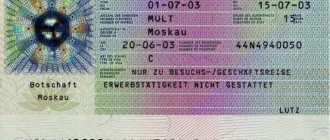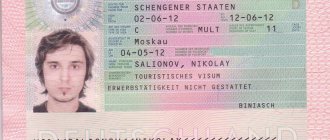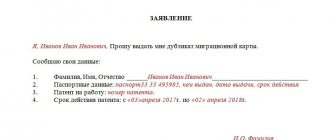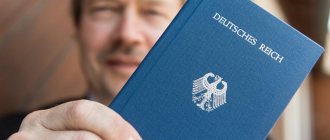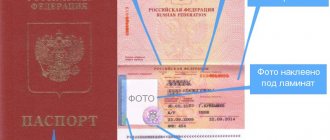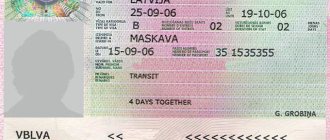Visas to Germany
- transit visa
- issued to persons whose purpose of visit is transit to third countries through an international airport in Germany; - visa-free transit
- if a transfer from one flight to another is carried out in the transit zone of one airport (Frankfurt am Main and Munich (24 hours a day); Hamburg, Cologne, Düsseldorf and Berlin Tegel (with restrictions) within 24 hours, to a non-Schengen country zone; - visa category C
(short-term stay up to 90 days) - issued to persons whose purpose of visit is tourism, transit, visiting relatives or friends, business trips. This visa gives the right to visit countries in the Schengen area. A visa can be single, double or multiple and allows a foreigner, respectively, one, two or an unlimited number of times, during the time specified in the visa, to transit or enter and plan to stay in the territory of the countries participating in the Schengen Agreement. The validity period of a visa can be from several days (usually issued according to the duration of the trip) to several years, however, the duration of the trip or the total number of days of stay in the territory of the Schengen countries should not exceed 90 days for each period of 180 days; - visa category D
(long-term national visa for a period of stay of 90 days) - valid only in Germany and gives the right to stay in the country for up to 1 year with the possibility of extension after completion. This visa gives the right to travel to Schengen countries for up to 90 days during the validity period of the national visa. For such a visa you must apply directly to the German Embassy in Moscow.
Types and types of visas
Depending on the purpose of your trip to the territory of the state, you will need to select the appropriate type of visa to Germany to apply for. These documents are divided into the following types:
- Schengen visa type C (permission allows you to enter a European country for up to 3 months).
- Tourist visa (this document is intended for those traveling to Germany on vacation or by invitation; it also allows entry for 90 days).
- Transit permit (gives the right to enter to make a transfer, allows you to stay in the country for up to 5 days).
- National visa type D (this document opens up the opportunity for a long trip, employment and study).
The issuance of a national Schengen visa to Germany takes a longer period of time; in addition, an expanded list of documentation is required to serve the document.
Important! Each person determines which visa a Russian needs for Germany independently, based on the purposes of the upcoming trip to a Schengen country.
Do you want to get EU citizenship in 12 months? Take the free test and find out your chances.
List of documents for obtaining a visa to Germany through a travel agency
An approximate list of documents required to obtain a German visa (different tour operators may require a different set of documents):
- international passport
valid for 3 months after the end of the trip. Be sure to have two blank pages. The passport must not be damaged, torn, dirty, or have any extraneous entries or marks. All corrections in the passport must be certified by the seal of the issuing authority. The passport must contain the signature of the owner from the age of 14; - Application form for a visa to Germany in two copies. The application form must have the original signature of the tourist, as in the international passport (signature in paragraph 37 and at the end of the 4th page), one of the parents signs for the minor;
- 2 color photographs
: 3.5x4.5 cm, matte, on a white background, without corners, ovals, stamps, black glasses, in dark clothes, less than 6 months old, head size 3.2-3.6 cm (70-80 % of the entire image). The passport should not contain visas with this photo; - copies
of the first page
of the international passport
and all Schengen visas in it. If the passport contains visas opened by the consulates of Schengen countries, but the border crossing stamp was placed by another Schengen country, then a written explanatory note from the tourist is required to provide the reasons for this discrepancy; - copies
of all
Schengen visas
in canceled passports, including copies of the first pages of these passports; - copies
of all completed pages
of the internal passport
. In case of a change of surname and replacement of a civil passport with a new one, the tourist MUST replace the foreign passport with a new surname within one month from the date of change of surname; - a certificate from the place of employment
on the company's letterhead indicating the telephone number and address of the organization, position, length of service and monthly salary of the applicant (at least 20,000 rubles), the period of paid leave is indicated. The certificate must indicate the date of issue. The certificate is valid for no more than a month from the date of submission of documents to the Consulate. The certificate is signed by the head of the organization and certified by a seal. If the head of the enterprise is a relative or namesake, a second signature is required (chief accountant, deputy director, head of human resources). Working pensioners additionally provide a pension certificate; - confirmation
of a sufficient amount of funds (if the salary is less than 45,000 rubles) - an original bank account statement with movements for the last 6 months on bank letterhead, confirming that the tourist has sufficient funds, at the rate of 57 euros per day, but not less than 1000 euros per person or, in case of insufficient personal funds, a statement from the sponsor to assume all expenses, indicating the relationship of the sponsor and the sponsored + documents confirming the relationship: copies of the marriage / birth certificate, + a copy of the first page and page with registration of the internal passport, a certificate from the sponsor’s place of work and an extract from his account; - for tourists who are married
but have different surnames, it is necessary to attach
a copy of the marriage certificate
; - if one of the tourists has a valid Schengen visa
, you must attach copies of the double-page spread of your passport with a photo and visa; - if your own funds are insufficient,
be sure to include
a statement from the sponsor
agreeing to cover all expenses
Additional requirements
for non-working people
(schoolchildren, students, pensioners, housewives, etc.):
- certificate from the place of study
(students, schoolchildren) - copy of student ID
(students) - a copy of the pension book
, notarized (pensioners) - a statement from the sponsor
about accepting all expenses, indicating the relationship between the sponsor and the sponsored person (+ a copy of the relationship document), + a copy of his international passport (first page) or a copy of the first page and page with registration of the internal passport, a certificate from the sponsor’s place of work, with indicating a salary of at least 20,000 rubles or a bank account statement at the rate of 57 euros per day per person.
for individual entrepreneurs
and those who work for them (in addition to a certificate from the place of work):
- a copy of the certificate of registration
with the tax authority - a copy of registration certificate
with the tax authority
for minors:
- a notarized copy of the child's birth certificate
. If the surname of one or both parents in the birth certificate does not coincide with the surname of the child, it is necessary to provide notarized copies of documents confirming the relationship (certificate of paternity, marriage certificate, divorce certificate) - when a child leaves with one of the parents,
it is necessary to provide a copy of the notarized permission to leave from the second parent + a copy of the internal passport of the parent giving consent to the entry and exit of the child - when a child leaves accompanied by third parties,
it is necessary to provide a copy of the notarized permission to leave from both parents + copies of their internal passports, including the accompanying person - a copy of the visa
+ a double page of the passport with the details of the accompanying person (or parents), if any; - in the event of the death of one of the parents or deprivation of his parental rights, it is necessary to provide copies of the relevant documents. If one of the parents is missing, a police certificate is required; if at the birth of the child the father was registered according to the mother’s words, it is necessary to provide a certificate from the regional registry office - form 25 (original or notarized copy)
Sponsors can only be immediate family members
- spouses, parents, children, grandparents (documents confirming relationship must be provided)
The consulate reserves the right to request additional documents and invite a tourist for an interview, regardless of his location.
What are the most common reasons for refusal?
You may be denied a visa. And this does not mean that you will never get into the country now. This simply means that you need to figure it out, find out what caused the refusal.
Most often they refuse:
- Due to violation of migration laws in the territory of the Schengen countries.
- Incorrectly completed documents.
- An incomplete set of documents, that is, some certificates were not provided. They may ask you for them, or they may refuse them outright.
- The consular fee was not paid in full.
- Incorrect information provided.
- Some documents have expired.
- The translation has not been made (or not notarized, the required apostille is missing). In a word, what requirement has not been met.
A refusal to issue a visa does not mean that you will never get to Germany.
Applying for a visa to Germany may seem like a troublesome task. However, in reality it is not so difficult if you understand everything. And, of course, you can always delegate the solution of such a task to specialists who are well versed in how to make a visa.
Applying for a visa to Germany yourself
You can apply for a visa to Germany yourself
, for this you need to collect approximately the same list of documents + medical insurance, a copy of round-trip air tickets, proof of accommodation, or an invitation, and submit it either to the
Consular Section
of the German Embassy in Moscow, the Consulate General in the cities of Yekaterinburg, St. Petersburg, Novosibirsk, Kaliningrad or through the Visa Service Centers of Germany.
Detailed information
information about the types of visas, methods of obtaining, a list of documents provided, production times, costs, addresses of visa centers, forms and samples of documents, sign up to submit documents, etc. can be found
on the website
of the Germany Visa Service Center.
Conclusion
Now you know how to get a visa to Russia in Germany. We hope that our article was useful to you, and if so, we ask you to share the link to it with your friends. We wish you to receive a 3-year Russian visa and go on many pleasant trips around our country!
What else do you need for travel and where to find, buy or order it?:
Don't forget to take out coronavirus insurance
And also check out our article about the best online guided tours
- Read how to cheaply get to the city center from Russian airports: Domodedovo, Sheremetyevo, Vnukovo, Pulkovo, Koltsovo and many others.
- Buy cheap air tickets on AviaSales.Ru Or buy a Russian Railways train ticket through the Tutu.Ru
- Or buy an “all inclusive” tour on the OnlineTours
New articles on our website
- The most interesting places on the MCD-2 route.
- We wrote about the Space Conquerors Park named after. Yuri Gagarin
- We calculated how much a spring vacation in Russia costs in 2021 .
- We updated the article about which countries are open for departure from Russia
- We traveled all over the Moscow region in search of the most interesting abandoned buildings .
- We have added information on where to urgently take a PCR test at Moscow airports .
- And then they wrote 7 ways to catch the cheapest train ticket.
- We went to Yasnaya Polyana and told you how to get there .
552
Cost of obtaining a visa to Germany
When purchasing a tour through a travel agency
- for Russian citizens - 80
€ - urgent visa for Russian citizens - 130-160
€ - for children under 6 years old - 15
€
When submitting documents independently through the Consulate
- for Russian citizens - 35
€ - urgent visa for Russian citizens - 70
€ - for children under 6 years old - free
When submitting documents independently through a German visa center
- for Russian citizens - regular 35
€, urgent 70 € + service fee -
20.35
€ - for children under 6 years old - free
Payment of visa and service fees is made at the visa center in rubles at the Central Bank exchange rate on the day of payment.
Migration card
Upon arrival in Germany, before crossing the border, a migration card is filled out. To speed up the process of passing through the border control point, such cards are usually issued on the plane, where our flight attendants can help fill them out. It should be filled out with a blue or black pen, in block Latin letters. The card must be filled out for each person entering, including each child with their own passport. Sample of filling out a migration card when entering Germany. There is no need to download a blank card from the Internet, print it out and fill it out at home; just take a sample of the form with you.
Embassy and Consulates of Germany in the Russian Federation
German Embassy in Moscow
Address: Moscow
, st. Mosfilmovskaya, 56 Telephone Official website: germania.diplo.de
Consular Section in Moscow
Address: Moscow
, Leninsky Prospekt, 95A Telephone
Consulate General of Germany in St. Petersburg
Address: St. Petersburg
, st. Furshtatskaya 39 Phone
Consulate General of Germany in Kaliningrad
Address: Kaliningrad
, st. Leningradskaya 4 Phone
Consulate General of Germany in Yekaterinburg
Address: Ekaterinburg
, st. Kuibysheva, 44, office 702 Telephone
Consulate General of Germany in Novosibirsk
Address: Novosibirsk
, Krasny Prospekt, 28 Telephone, 231-00-20, 231-00-55
